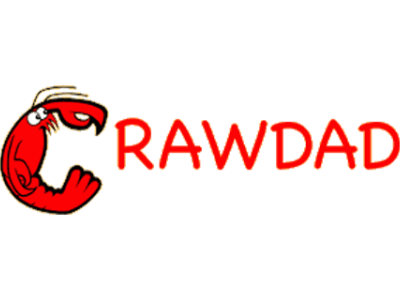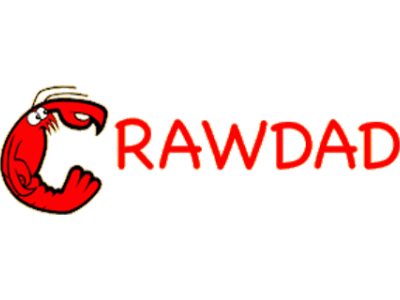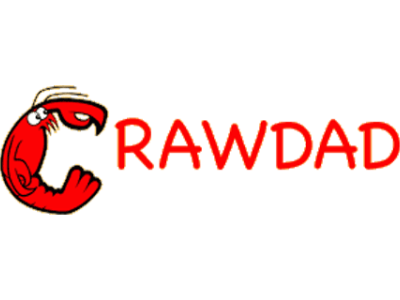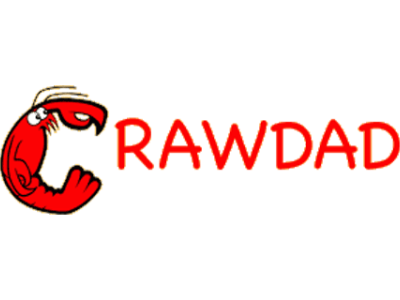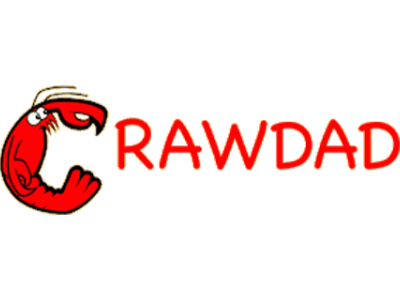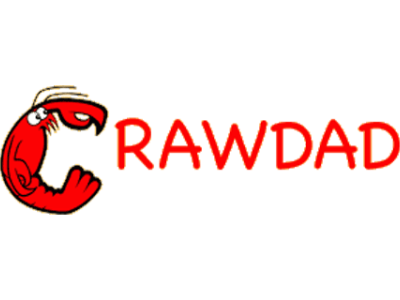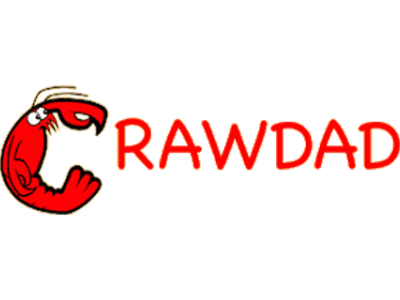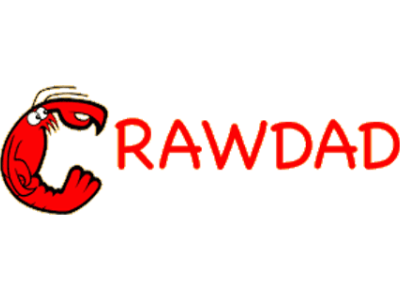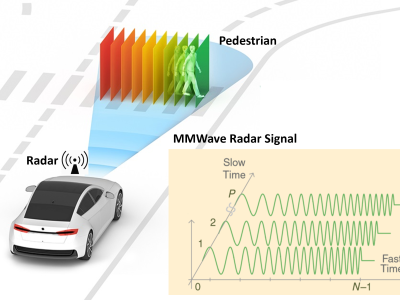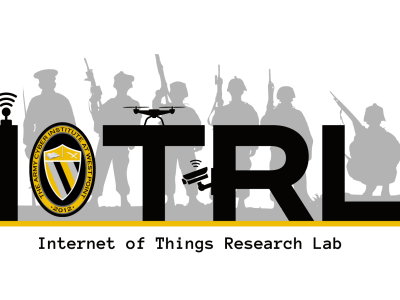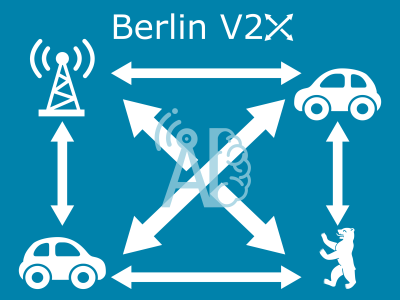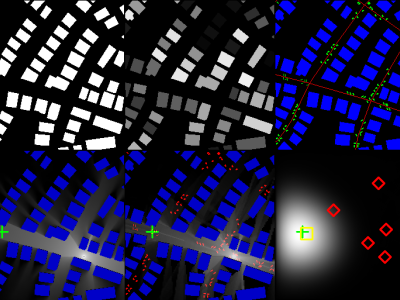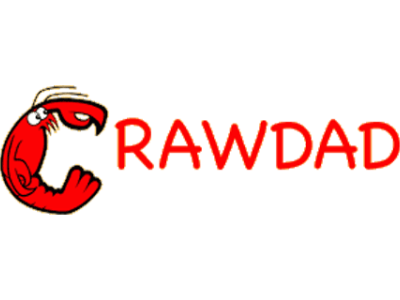CRAWDAD hope/amd
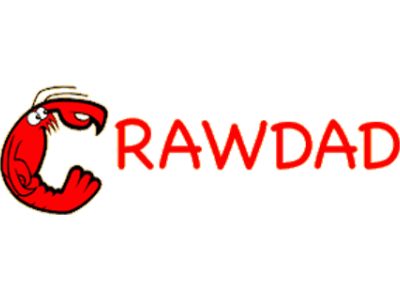
- Citation Author(s):
-
aestetix HOPE (The Hackers on Planet Earth)Christopher Petro (HOPE (The Hackers on Planet Earth))
- Submitted by:
- CRAWDAD Team
- Last updated:
- DOI:
- 10.15783/C7101B
- Data Format:
 215 views
215 views
- Categories:
Abstract
RFID tracking data collected from the seventh HOPE (Hackers On Planet Earth) conference held in July 18-20, 2008.
RFID tracking data was collected from the seventh HOPE (Hackers On Planet Earth) conference which was held in July 18-20, 2008. Conference attendees received RFID badges that uniquely identify and track them across the conference space.
last modified :
2008-10-20release date :
2008-08-07date/time of measurement start :
2008-07-18date/time of measurement end :
2008-07-20collection environment :
RFID technology is now ubiquitous. RFID tags are used to track people and their belongings, monitor their behavior, make payments on major transit systems, manage store inventories, and far more. The AMD, or "Attendee Meta-Data", project is an attempt to apply the RFID technology to the seventh HOPE (Hackers On Planet Earth) conference, which was held at the Hotel Pennsylvania in New York City, July 18-20, 2008. The AMD project aims to transparently show that the RFID technology can be used to connect each of the conference attendees with other people so they get a better conference experience.network configuration :
RFID is an acronym for "radio frequency identification". In the case of the AMD or "Attendee Meta-Data" project, people can wear a special badge with an RFID "chip" inside which responds to RFID "readers" placed around the conference. The chip can tell the reader where it is, and we can use that to follow people around the conference. The badges, commissioned by Mitch Altman, inventor of TV-B-Gone, expanded on equipment from the Sputnik project, an experiment in RFID tracking at the 24th Chaos Communication Congress held in Berlin last year.data collection methodology :
Attendees receive RFID badges that uniquely identify and track them across the conference space. Location information is incredibly accurate - visitors' exact locations and movements are monitored in real time, and used to drive social networking features which completely change the conference experience.sanitization :
Private information is either anonymized (e.g., EMAIL, LOCATION) or removed (e.g., PHONE, ROOM_NUMBER).limitation :
Due to obvious privacy concerns, it only follows people in the most public areas (such as talk rooms). People who are not on the mezzanine or 18th floor will not be trackable.Traceset
hope/amd/conference
RFID tracking data collected from the seventh HOPE (Hackers On Planet Earth) conference held in July 18-20, 2008.
- description: RFID tracking data was collected from the seventh HOPE (Hackers On Planet Earth) conference which was held in July 18-20, 2008. Conference attendees received RFID badges that uniquely identify and track them across the conference space. The attendees "tag" themselves with multiple interests, to become discoverable by fellow attendees with similar interests, in the same room or across the building.
- measurement purpose: Location-aware Computing, Social Network Analysis, Human Behavior Modeling
- methodology: 1. Conference setting The AMD, or "Attendee Meta-Data", project is an attempt to take an emerging technology called RFID and transparently show how it is capable of being used. In addition, it uses a concept called "interest tags" to allow attendees to not only get a better conference experience, but also gives them a new way to connect with other people. The AMD project introduces a new location-aware social networking system to track and bring together hackers based on a huge array of matching interests. Conference goers are given ability to connect with new people, find the talks they're most interested in attending, see what's happening and where in real time, and experience and talk about the way RFID technology is changing the world. Attendees receive RFID badges that uniquely identify and track them across the conference space. Location information is incredibly accurate - visitors' exact locations and movements are monitored in real time, and used to drive revolutionary social networking features which completely change the conference experience. 2. Interest tags and the AMD site The AMD social networking site lets visitors "tag" themselves based on a diverse set of interests. Old-school hackers, network security experts, cryptographers, political activists, law geeks, lockpickers, reverse engineers, bloggers, privacy advocates, and far more - visitors can label themselves with multiple interests, to become discoverable by fellow visitors from around the world with similar interests, in the same room or across the building. Attendees can then use email or text messages to "ping" the people they discover on the site - new contacts and old friends alike. Interest tags are bits of data pertaining to a subject at hand. For example, the image website Flickr uses interest tags to help users sort images. In AMD, users with RFID badges can log into the website, and on the "participate" page, they can select up to five interests they may share with other conference attendees. We can use these interests to determine other people the users may want to meet. The AMD site connects visitors to the many talks and events occurring during the conference, too. The same interests tags are used to highlight events and alert visitors to something they might otherwise miss - a vital feature for such a large conference. Attendees can also use the interactive schedule to select events they want to attend, and receive alerts before those events begin. The site also provides visualizations of activity on the conference floors. Website users can watch the real time positions and movements of people across the Mezzanine, revealing the group dynamics of a massive number of people and instantly identifying the hotspots. Users can also click on any conference room to see its current event, speakers, and attendees. Visitors are further encouraged to connect and participate through interactive games. The LIFE:CLOCK game scores visitors based on which events they attend and for how long - or if they do nothing, their clock slowly ticks away towards zero. Although the AMD Project offers a radical new way to experience The Last HOPE, participation is voluntary. And attendees who do participate can choose to reveal as much or as little personal information as they desire. Users can see other users' handles, but contact information is not divulged until users send or reply to pings. Unwanted pings can be ignored, and privacy preserved. 3. Tracking and collecting information RFID is an acronym for "radio frequency identification". In the case of the AMD project, people can wear a special badge with an RFID "chip" inside which responds to RFID "readers" placed around the conference. The chip can tell the reader where it is, and we can use that to follow people around the conference. Due to obvious privacy concerns, it only follows people in the most public areas (such as talk rooms). People who are not on the mezzanine or 18th floor will not be trackable. The only thing that gets tracked is the RFID number burned into the badge (for example, "2001"). No personal information is stored on the badge. However, if an attendee create a profile, everything that is entered can be used in tracking, so we can track as much or as little information as the attendee want. The other information we collect is voluntary, but help enhance the attendees' convention experience. This includes the information of age, email address, phone number, and home town. The information of age and home town can be used for things like meetup groups. For example, we can let an attendee from St. Louis know that everyone from St. Louis is meeting up at 5pm to go out for dinner. Phone numbers can help enhance the experience even more. For example, we can send a text message reminder of a talk the participate wanted to see, 15 minutes before the talk. Or maybe an attendee would like to get ahold of someone he or she met, but only remember their handle. Then the attendee can use the AMD system to make that new connection.
- last modified: 2008-10-20
- dataname: hope/amd/conference
- version: 20080807
- change: the initial version.
- release date: 2008-08-07
- date/time of measurement start: 2008-07-18
- date/time of measurement end: 2008-07-20
hope/amd/conference Traces
- countries: A list of countries for the hope/amd RFID tracking data.
- configuration: A list of countries.
- format: ID,COUNTRY File name: countries.csv Sample data: 1,"United States" 2,"Japan" 3,"Germany" 4,"China (PRC)" 5,"United Kingdom"
- description: A list of countries for the hope/amd RFID tracking data.
- last modified: 2008-10-20
- dataname: hope/amd/conference/countries
- version: 20080807
- change: the initial version
- release date: 2008-08-07
- date/time of measurement start: 2008-07-18
- date/time of measurement end: 2008-07-20
- creation: User creation logs for the hope/amd RFID tracking data.
- configuration: User creation logs.
- format: ID,PIN,REGISTERED,TIMESTAMP File name: creation.csv Sample data: 7451,7218361199,,7/18/2008 6:30:23 AM 7452,4820243524,,7/18/2008 6:30:23 AM 7453,3770182004,,7/18/2008 6:30:23 AM 7454,8021624905,,7/18/2008 6:30:23 AM 7455,2146521284,,7/18/2008 6:30:23 AM
- description: User creation logs for the hope/amd RFID tracking data.
- last modified: 2008-10-20
- dataname: hope/amd/conference/creation
- version: 20080807
- change: the initial version
- release date: 2008-08-07
- date/time of measurement start: 2008-07-18
- date/time of measurement end: 2008-07-20
- interests_list: A list of interests for the hope/amd RFID tracking data.
- configuration: A list of interests.
- format: INTEREST_ID,INTEREST_NAME File name: interests_list.csv Sample data: 1,"new tech" 2,"activism" 3,"radio" 4,"lockpicking" 5,"crypto"
- description: A list of interests for the hope/amd RFID tracking data.
- last modified: 2008-10-20
- dataname: hope/amd/conference/interests_list
- version: 20080807
- change: the initial version
- release date: 2008-08-07
- date/time of measurement start: 2008-07-18
- date/time of measurement end: 2008-07-20
- interests: User-interest mapping for the hope/amd RFID tracking data.
- configuration: User-interest mapping.
- format: ID,INTEREST File name: interests.csv Sample data: 3003,5 3003,6 3003,11 3003,12 3003,15
- description: User-interest mapping for the hope/amd RFID tracking data.
- last modified: 2008-10-20
- dataname: hope/amd/conference/interests
- version: 20080807
- change: the initial version
- release date: 2008-08-07
- date/time of measurement start: 2008-07-18
- date/time of measurement end: 2008-07-20
- person: Personal user profile for the hope/amd RFID tracking data.
- configuration: Personal user profile.
- format: ID,LOCATION,EMAIL,HANDLE,PASSWORD,ROOM_NUMBER,PHONE,AGE,SEX,COUNTRY,EDITED,PROVIDER,SPEAKER,ADMIN,REMINDER,VALIDATION,LOGGEDIN File name: person.csv Sample data: 4135,,user4135@amd.hope.net,user4135,,,,,,,,,,,,, 4291,1060,user4291@amd.hope.net,user4291,,,,29,1,1,1,3,,,3,, 3407,Vancouver,user3407@amd.hope.net,user3407,,,,36,2,9,1,3,,,0,, 4137,14304,user4137@amd.hope.net,user4137,,,,23,1,1,1,,,,1,, 3489,,user3489@amd.hope.net,user3489,,,,,,,,,,,,,
- description: Personal user profile for the hope/amd RFID tracking data.
- last modified: 2008-10-20
- dataname: hope/amd/conference/person
- version: 20080807
- change: the initial version
- release date: 2008-08-07
- date/time of measurement start: 2008-07-18
- date/time of measurement end: 2008-07-20
- ping: User ping longs for the hope/amd RFID tracking data.
- configuration: User ping logs: attendees can use email or text messages to "ping" the people they discover on the site - new contacts and old friends alike.
- format: ID,TO_ID,PINGTIMESTAMP,PINGTYPE4031,4029,7/18/2008 9:13:46 AM,"email" File name: ping.csv Sample data: 4031,3014,7/18/2008 9:13:51 AM,"email" 3144,3014,7/18/2008 6:39:10 PM,"email" 4178,3082,7/18/2008 6:59:15 PM,"email" 4011,3504,7/20/2008 11:55:59 AM,"sms"
- description: User ping longs for the hope/amd RFID tracking data.
- last modified: 2008-10-20
- dataname: hope/amd/conference/ping
- version: 20080807
- change: the initial version
- release date: 2008-08-07
- date/time of measurement start: 2008-07-18
- date/time of measurement end: 2008-07-20
- position_snapshot: Location logs for the hope/amd RFID tracking data.
- configuration: Location logs.
- format: SNAPSHOT_TIMESTAMP,TAG_ID,AREA_ID,X,Y,Z File name: position_snapshot.csv Sample data: 7/18/2008 2:27:47 PM,3642,"LaptopWorkArea",,, 7/18/2008 2:27:47 PM,4177,"Turing",,, 7/18/2008 2:27:47 PM,4147,"Turing",,, 7/18/2008 2:27:47 PM,4195,"LegoTable",,, 7/18/2008 2:27:47 PM,4238,"Turing",,,
- description: Location logs for the hope/amd RFID tracking data.
- last modified: 2008-10-20
- dataname: hope/amd/conference/position_snapshot
- version: 20080807
- change: the initial version
- release date: 2008-08-07
- date/time of measurement start: 2008-07-18
- date/time of measurement end: 2008-07-20
- providers: A list of mobile phone providers for the hope/amd RFID tracking data.
- configuration: A list of mobile phone providers.
- format: ID,PROVIDER,ADDRESS File name: providers.csv Sample data: 0,"Choose a provider...","n/a" 1,"Verizon","vtext.com" 2,"Sprint PCS","messaging.sprintpcs.com" 3,"AT&T Wireless","txt.att.net" 4,"Cingular","cingularme.com"
- description: A list of mobile phone providers for the hope/amd RFID tracking data.
- last modified: 2008-10-20
- dataname: hope/amd/conference/providers
- version: 20080807
- change: the initial version
- release date: 2008-08-07
- date/time of measurement start: 2008-07-18
- date/time of measurement end: 2008-07-20
- snapshot_summary: Activity span logs for the hope/amd RFID tracking data.
- configuration: Activity span logs.
- format: TIME_PERIOD,TAG_ID,AREA_ID,NORMALIZED_TIME_IN_AREA File name: snapshot_summary.csv Sample data: 7/20/2008 1:40:00 PM,4245,"VendorTables",0.2 7/20/2008 1:40:00 PM,4245,"CTF",0.2 7/20/2008 1:40:00 PM,4245,"LegoTable",0.1 7/20/2008 1:45:00 PM,4245,"VendorTables",0.916666666666667 7/20/2008 1:45:00 PM,4245,"Hammocks",0.0833333333333333
- description: Activity span logs for the hope/amd RFID tracking data.
- last modified: 2008-10-20
- dataname: hope/amd/conference/snapshot_summary
- version: 20080807
- change: the initial version
- release date: 2008-08-07
- date/time of measurement start: 2008-07-18
- date/time of measurement end: 2008-07-20
- talk_presence: Talk presence logs for the hope/amd RFID tracking data.
- configuration: Talk presence logs.
- format: PERSON_ID,TALK_ID,HANDLE,TALK_TITLE,TRACK,TALK_TIME File name: talk_presence.csv Sample data: 4326,27,"baxkylie","Exploration of Possibilities: Brain Hacking","Engressia",7/18/2008 7:00:00 PM 3690,29,"santod","A Collaborative Approach to Hardware Hacking: NYCResistor","Turing",7/18/2008 7:00:00 PM 3838,28,,"Hacking the Young Lady's Illustrated Primer: Dispatches from the Field of Educational Technology","Hopper",7/18/2008 7:00:00 PM 4252,29,,"A Collaborative Approach to Hardware Hacking: NYCResistor","Turing",7/18/2008 7:00:00 PM 3677,28,,"Hacking the Young Lady's Illustrated Primer: Dispatches from the Field of Educational Technology","Hopper",7/18/2008 7:00:00 PM
- description: Talk presence logs for the hope/amd RFID tracking data.
- last modified: 2008-10-20
- dataname: hope/amd/conference/talk_presence
- version: 20080807
- change: the initial version
- release date: 2008-08-07
- date/time of measurement start: 2008-07-18
- date/time of measurement end: 2008-07-20
- talks: A list of talks for the hope/amd RFID tracking data.
- configuration: A list of talks.
- format: D,SPEAKER_NAME,TALK_TITLE,ABSTRACT,TALK_TIME,TRACK File name: talks.csv Sample data: 9,"Gregory Conti","Evil Interfaces: Violating the User",In a perfect world, interfaces help users accomplish tasks quickly and efficiently. However, in the real world, interfaces are often designed to manipulate users into behaving according to the designer's calculated and suspect intent. Malicious interfaces abound on the web - employing trickery, misdirection of browsing, forced viewing of advertisements, and even animations designed to trigger epileptic seizures. Evil interfaces are seen virtually anywhere profit is at stake, from desktop applications and websites to gas pumps and toothpaste dispensers. This talk explores malicious interface techniques both on and off the desktop, and aims to energize the audience to pursue positive solutions. You'll leave with a better awareness and understanding of the problem, increased resistance to attack and ideas for generating solutions.,7/18/2008 1:00:00 PM,"Engressia"
- description: A list of talks for the hope/amd RFID tracking data.
- last modified: 2008-10-20
- dataname: hope/amd/conference/talks
- version: 20080807
- change: the initial version
- release date: 2008-08-07
- date/time of measurement start: 2008-07-18
- date/time of measurement end: 2008-07-20
- talks_list: User-talk mapping for the hope/amd RFID tracking data.
- configuration: User-talk mapping.
- format: HACKER_ID,TALK_ID File name: talks_list.csv Sample data: 3066,86 3066,87 3066,88 3066,89 3066,90
- description: User-talk mapping for the hope/amd RFID tracking data.
- last modified: 2008-10-20
- dataname: hope/amd/conference/talks_list
- version: 20080807
- change: the initial version
- release date: 2008-08-07
- date/time of measurement start: 2008-07-18
- date/time of measurement end: 2008-07-20
Instructions:
The files in this directory are a CRAWDAD dataset hosted by IEEE DataPort.
About CRAWDAD: the Community Resource for Archiving Wireless Data At Dartmouth is a data resource for the research community interested in wireless networks and mobile computing.
CRAWDAD was founded at Dartmouth College in 2004, led by Tristan Henderson, David Kotz, and Chris McDonald. CRAWDAD datasets are hosted by IEEE DataPort as of November 2022.
Note: Please use the Data in an ethical and responsible way with the aim of doing no harm to any person or entity for the benefit of society at large. Please respect the privacy of any human subjects whose wireless-network activity is captured by the Data and comply with all applicable laws, including without limitation such applicable laws pertaining to the protection of personal information, security of data, and data breaches. Please do not apply, adapt or develop algorithms for the extraction of the true identity of users and other information of a personal nature, which might constitute personally identifiable information or protected health information under any such applicable laws. Do not publish or otherwise disclose to any other person or entity any information that constitutes personally identifiable information or protected health information under any such applicable laws derived from the Data through manual or automated techniques.
Please acknowledge the source of the Data in any publications or presentations reporting use of this Data.
Citation:
aestetix, Christopher Petro, hope/amd, https://doi.org/10.15783/C7101B , Date: 20080807


